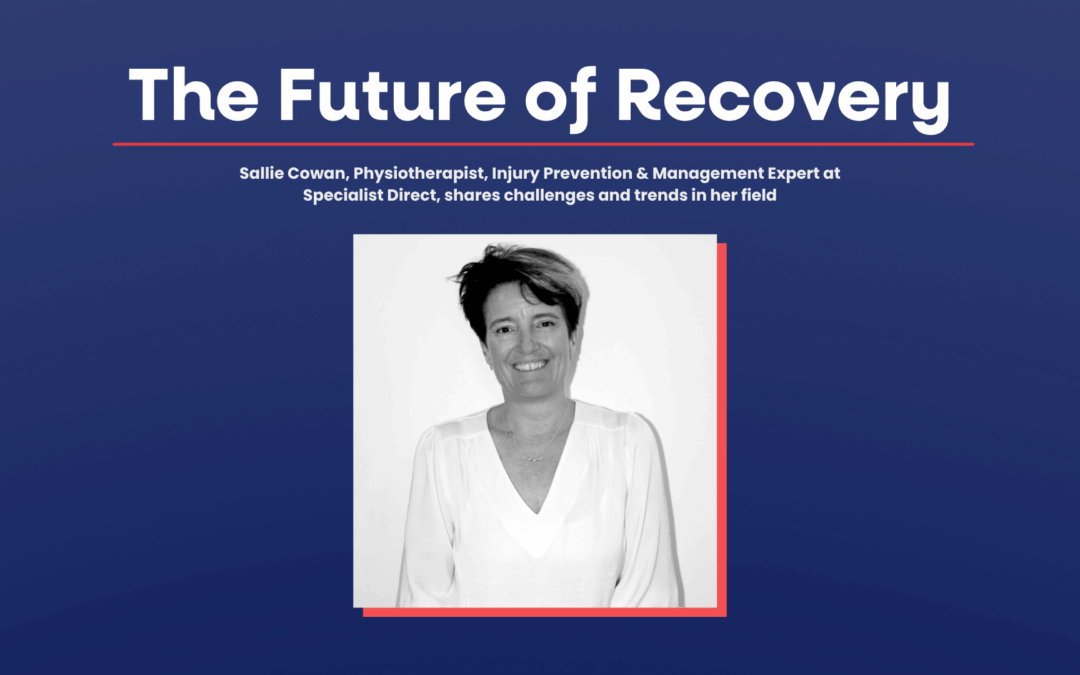In an era where healthcare is rapidly evolving, physiotherapy faces unique challenges, including increased competition and the influence of online medical information. We spoke with Sallie Cowan, a subject-matter expert at Mira whose vision has fundamentally shaped our platform’s approach to patient care. Her deep understanding of physiotherapy practice and unwavering commitment to evidence-based, patient-centred treatment have been instrumental in developing Mira’s capabilities.
Having someone with Sallie’s extensive experience and clinical insight on our team is invaluable. Her ability to bridge the gap between cutting-edge research and real-world application – something she identifies as a critical challenge in the field – directly informs how we build tools that physiotherapists actually need and patients truly benefit from. Her insights reveal both the obstacles and opportunities facing physiotherapists today, with a clear message that resonates throughout Mira’s design philosophy: successful outcomes depend on placing patient needs, wants, and preferences at the heart of treatment.
What are the biggest challenges or misconceptions in your field right now?
Navigating patient care in the world of Dr Google. Seeing physiotherapy survive and thrive in a world of increased competition.
What emerging trends or innovations do you think will shape the future?
The translation of quality evidence-based research into practice in a timely manner. We know that around 14% of the best scientific evidence will be adopted, and if it does survive, it takes about 17 years before it will be used in the real-world.
The use of technology to enhance the recovery journey.
What do people overlook when it comes to case and claims management or physiotherapy/players’ recovery?
The patients’ needs/wants/preferences need to be at the centre of your care paradigm if you are to get the best results for the patient and for their health outcomes.
Research indicates that patients’ needs and wants are important for several key reasons:
Patient satisfaction and experience: Studies show that addressing patients’ needs and preferences leads to higher satisfaction with care and better overall patient experiences. Patients who feel their needs are met tend to report more positive interactions with healthcare providers.
Health outcomes: Meeting patients’ needs is associated with improved health outcomes. Engaged patients who have their preferences considered are more likely to adhere to treatment plans and have better clinical results.
Quality of care: Patient-centred care that focuses on individual needs and wants is considered a key dimension of healthcare quality. It helps ensure care is responsive and respectful to patient preferences.
Shared decision-making: Understanding patient needs and wants enables more effective shared decision-making between patients and providers, leading to care plans that align with patient goals.
Healthcare utilization: When patients’ needs are addressed, it can reduce unnecessary healthcare utilization and costs. Patients are less likely to seek additional care or change providers if they feel their needs are being met.
Patient engagement: Considering patient preferences increases engagement in their own healthcare, which is associated with better self-management of conditions.
System improvement: Gathering patient input on their needs and wants provides valuable insights for healthcare organizations to improve services and processes.
Ethical considerations: Respecting patient autonomy and preferences is considered an ethical imperative in modern healthcare.
In summary, a substantial body of research indicates that understanding and addressing patients’ needs and wants is crucial for providing high-quality, patient-centred care that leads to better outcomes and experiences. Healthcare systems are increasingly recognising the importance of incorporating the patient voice into care delivery and quality improvement efforts.

